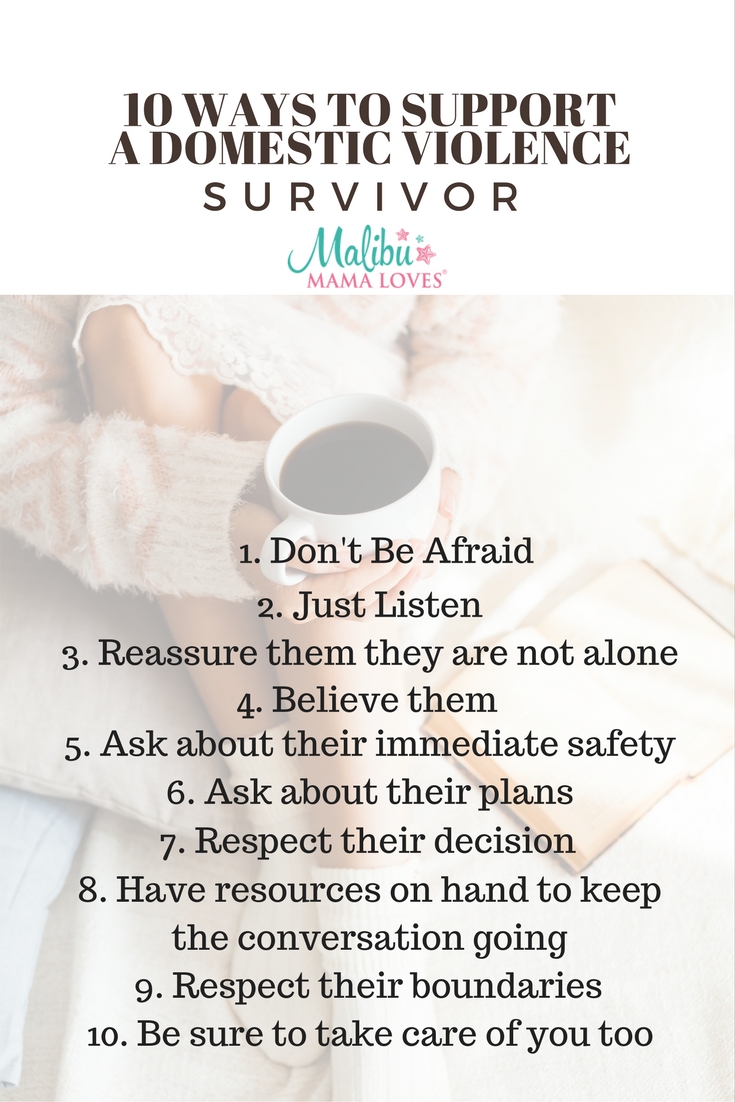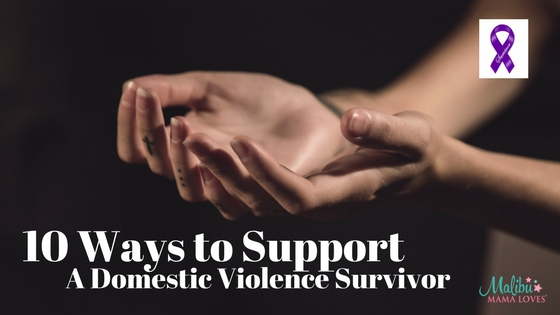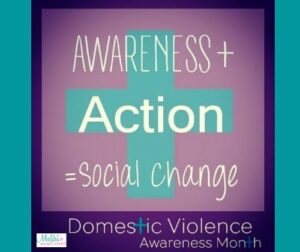10 Ways To Support A Domestic Violence Survivor
Domestic violence happens far more often than we care to admit. It is uncomfortable to think about our loved ones being hurt in some way. So when a loved one opens up about domestic violence to us, it can be tough to know what to do.
I’ve run into this problem on both sides of the spectrum. Hearing a loved one share something awful happening at their home AND finally gaining the courage to speak out about what was happening in my own. From wanting to jump up and fix everything for my loved ones to watching people struggle to find meaning in what I was sharing… it can be awkward to say the least!
According to the experts, and my experiences, I’ve put together a list of 10 ways to support a domestic violence survivor because really, at the end of the day, we should be talking about it. We can make a difference in our friends, loved ones and community’s lives. Whether you are concerned about someone and aren’t sure how to approach them or someone just suddenly feels comfortable and opens up to you, these tips will help you to help them.
And it is much easier (and less awkward) than you think! 😉
10 Ways To Support A Domestic Violence Survivor
- Don’t be afraid. I know. It sucks. We want to avoid it. But it does happen and you can help. By opening up your heart, by not being afraid to have a difficult conversation, you can be the change in someone else’s world that they desperately need.
- Just Listen. If you need to approach someone, pick a quiet, safe, confidential spot and start with “I’m worried about you, is there anything I can do to help” if they ask you why, state a specific incidence that worried you in a loving, open way and ask “do you feel safe”. If someone opens up to you, just listen. In both cases, follow the victims lead in what they are comfortable sharing and talking about. Just hear them, let them get it out. Give them a hug and tell them that it is going to be ok.
- Reassure them that they are not alone. One of the worst effects of being a domestic violence survivor is how utterly alone we feel. If you find yourself in a conversation with a domestic violence survivor, reassure them that they are not alone. That there are so many resources available to help and that you will be there to help them in however they feel they need it.
- Believe them. One of the things that holds many domestic violence survivors back is that no one will believe them. So say the words “I believe you.” Followed by “Are you safe now, what is your plan for safety”. Focus them on what they want and what pace they think they can do it at. Remember, this is about them, not you saving the day, but how you can be helpful to them in themselves changing their life. They know their situation better than anyone and usually will have some idea. If not, you can refer them to the National Hotline for Domestic Abuse or a local shelter (like the Coalition in Ventura County) and be there for them to help them make that call. You can check this website to find a shelter near you
- Ask about their immediate safety. This is so important, harp on it. Let them go at their own pace, but reiterate that they need to be safe and what can you both do to make that happen. Let them tell you.
- Ask if they have any plans. Whether they want to stay and try to get the violence out of their relationship or they want to leave, ask what their plans are and how you can be of some help. Need a little cheat sheet? Pin and share this for a helpful last minute reminder:

- Respect their decision. You may not understand it, but please respect it. If a domestic violence survivor is opening up to you, they need your support. So give it to them how they need it, but be sure to pass along as much information as you can dig up – here are some great resources.
- Have resources on hand for the next meeting. Or ask if there is a safe way you can give them to the domestic violence survivor without putting them in a difficult position. Do what you have to to continue to conversation, checking in regularly, reminding them you are there to help and support them.
- Respect their boundaries. We can only do so much, just as my friends could only do so much for me. I had to make the tough choices, just as many domestic violence survivors do. It may be hard to watch their choices, but respect their boundaries and be there how they will let you.
- Be sure to take care of you too. I know this is a hard topic. Don’t be afraid to call the national hotline for yourself to learn how you can be supportive in a healthy way for you both. If your conversations get to heavy for you, that is ok. Turn it over to a professional, get a counselor from your local women’s shelter involved. Don’t be afraid to reach out for backup.
By opening and keeping the lines of communication open with a domestic violence survivor, you are already doing so much to end domestic violence.
Let’s keep the conversation going!
Cheers and #MeToo!
Malibu Mama Loves Xxx



 Hi There! Let's Share ✩ Explore ✩ Awaken together! I’m a Mama, published author, biohacker, and trauma-informed life coach raising conscious kids who truly appreciate our world through travel. Welcome to the Malibu Mama Loves Conscious Living Lifestyle!
Hi There! Let's Share ✩ Explore ✩ Awaken together! I’m a Mama, published author, biohacker, and trauma-informed life coach raising conscious kids who truly appreciate our world through travel. Welcome to the Malibu Mama Loves Conscious Living Lifestyle!




 Ready To Turn Your Trauma Pain Into Purpose? Join Our FREE Masterclass Click
Ready To Turn Your Trauma Pain Into Purpose? Join Our FREE Masterclass Click 


